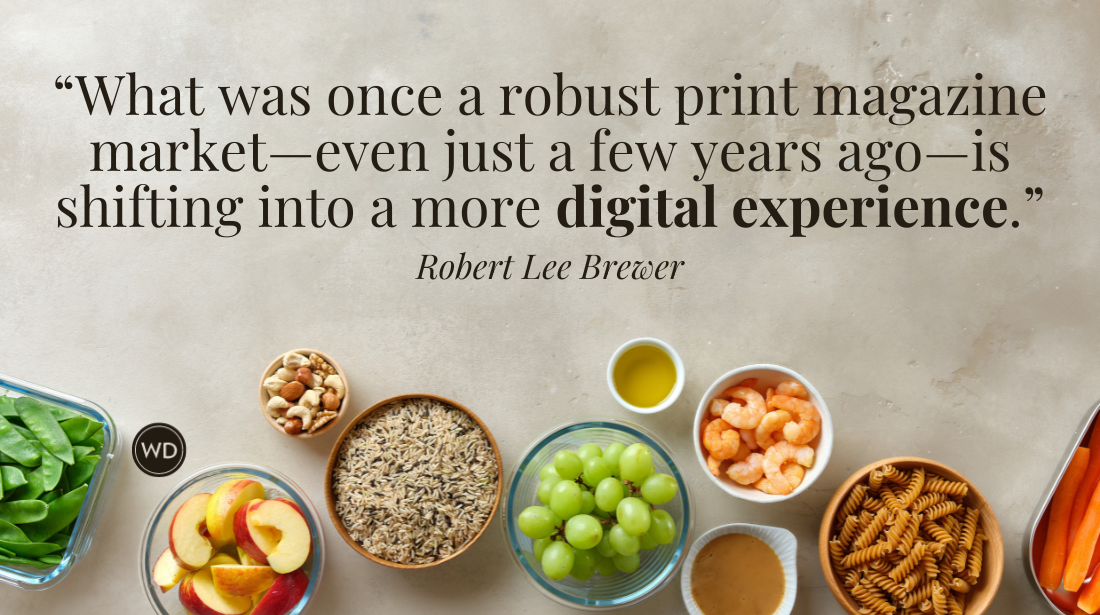Invoice Template for Freelance Writers
If you’re a freelance writer who is able to secure assignments, an essential tool you’ll need is an invoice. In this post, Writer’s Digest Senior Editor Robert Lee Brewer shares a very basic and easy invoice template for freelance writers to get the job done (and get paid).
There is so much that goes into freelance writing. First, you have to find markets to pitch. Then, you have to come up with great ideas and pitch them. Once you get accepted, you have to negotiate the best terms possible. And finally, you have to write a great piece and turn it in by the deadline.
But wait, that's not actually the final step. The final step is making sure you get paid and that starts with sending your publisher an invoice. Your invoice is a formal document that states that you are to be paid for services rendered. While I've slanted this post for nonfiction freelance writers, the invoice template I've shared below is perfect for poets and writers of fiction as well.
What Should an Invoice Include?
- Date. Near the top, you should include the date when you send over the invoice.
- Name and contact information. You should also include your name and contact information near the top that explains who is to be paid.
- Invoice number. This might sound silly, especially when you're starting out, but if you intend to make a career out of freelance writing, be sure to create a number system. One good technique is to use your initials followed by a string of numbers starting at something like 00001. For me, that would be RLB00001 for my first invoice, RLB00002 for my second invoice, and so on. This can really help with record keeping as your career gains traction.
- Bill to. For this you'll include the name and contact information that you have for the person or company that is supposed to pay you for your writing.
- For. On this line, you give a brief explanation of what you're being paid for, whether it's an article, blog post, podcast, etc.
- Description. This can give a little more specific detail about the services rendered.
- Amount Due. Here's where you specify how much you should be paid as mentioned in your contract.
- Due Date. For this one, many freelancers automatically put 30-day terms, but be sure to check with the publisher, because many have other payment timelines. Personally, I've been paid by some companies within a week, and others don't pay until a couple months after publication, which itself may take several months. So it's good to understand payment timelines as early as when you're negotiating your contract.
Invoice Template for Freelance Writers
Below, I've included a basic and easy invoice template that gets the job done based off the invoices I regularly receive from freelancers and have successfully used myself in the past. Of course, you can make it more fancy, but it's really this basic information that matters the most for receiving your payment in a timely manner.
And that's all there is to it. Happy freelancing and invoicing!
*****
In this workshop, you will work with a published article writer to develop, research and write two articles suitable for publication in magazines you've identified as appropriate markets. You will get feedback from your instructor on your first and second draft of both your articles.
Robert Lee Brewer is Senior Editor of Writer's Digest, which includes managing the content on WritersDigest.com and programming virtual conferences. He's the author of 40 Plot Twist Prompts for Writers: Writing Ideas for Bending Stories in New Directions, The Complete Guide of Poetic Forms: 100+ Poetic Form Definitions and Examples for Poets, Poem-a-Day: 365 Poetry Writing Prompts for a Year of Poeming, and more. Also, he's the editor of Writer's Market, Poet's Market, and Guide to Literary Agents. Follow him on Twitter @robertleebrewer.








